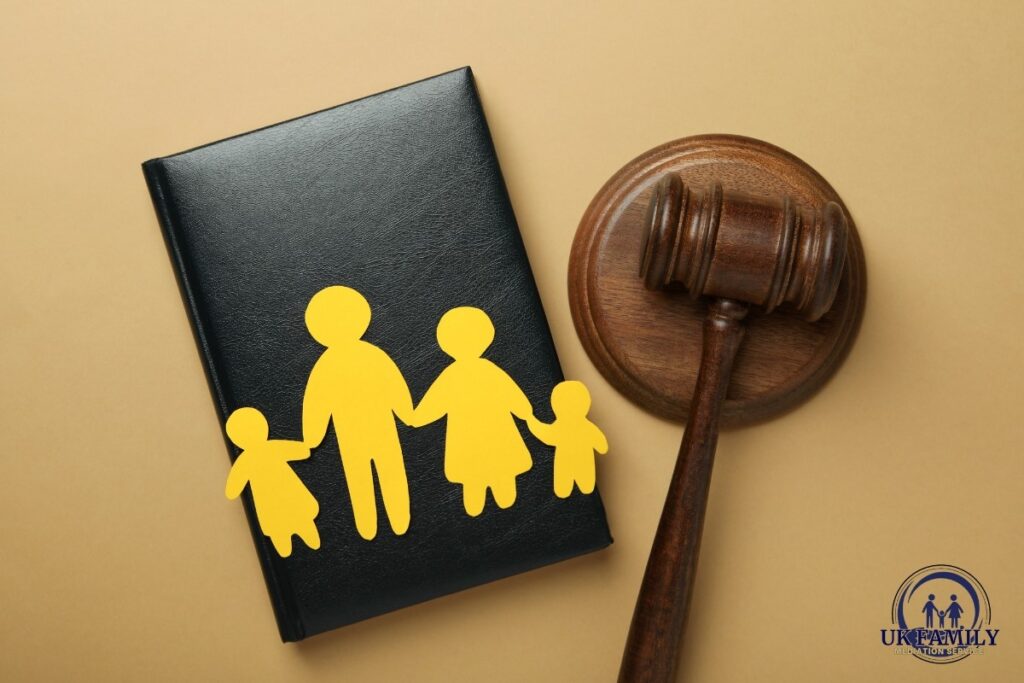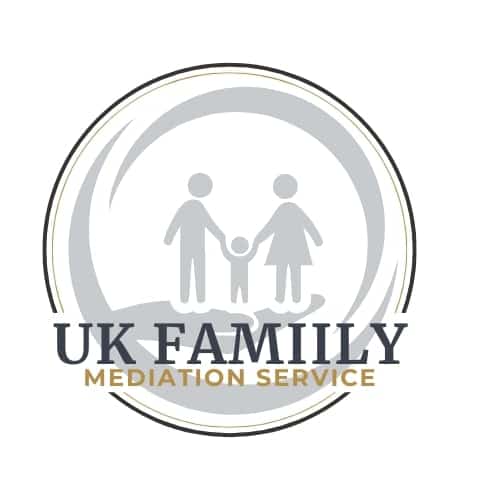
Family Mediation vs Court – Key Highlights
- UK Family Mediation Dorchester provides a calmer and friendlier way to solve family disputes than court proceedings.
- It includes a neutral person, called the mediator, who helps families find solutions that work for everyone, especially for child arrangements and financial issues.
- Mediation focuses on what is best for the children involved and even offers options that include children in the process.
- Although agreements made in mediation are not legal on their own, they can become legally binding consent orders.
- Deciding between mediation and court depends on your situation, but mediation is often the suggested first step for cases that qualify.
Introduction
When a relationship breaks down, managing family conflicts can be tiring and costly. You have two main choices to solve these issues: family mediation or court proceedings. While going to court might look like the first choice, UK Family Mediation [Name} can be a good and sometimes better way to resolve disputes. This blog post looks at the differences between these options. It highlights the advantages of family mediation and when it could be the best option.
Understanding Family Mediation in the UK

UK Family Mediation Dorchester offers a way to resolve disputes outside of court. It involves a trained and neutral mediator who helps people in conflict communicate better. The goal is to find agreements that work for everyone involved. Family mediation is often used in family law situations. These include child arrangements like custody and visitation, as well as child support and splitting finances or property when a couple divorces or separates.
This method is different from court proceedings, which can create a hostile setting. Family mediation is a voluntary process and alternative dispute resolution service that focuses on reducing conflict and supporting teamwork. This is especially important when children are involved. It helps shield them from negativity and promotes a friendly co-parenting relationship.
The Process of Family Mediation vs Court
- Mediation Information and Assessment Meeting (MIAM): The first step is usually to go to a MIAM. In this meeting, a trained mediator shares details about the mediation process. They check if mediation fits your specific circumstances and if your case can get legal aid.
- Mediation Sessions: Once you decide to move forward with mediation, a series of sessions are set up with your former partner. In these sessions, the parties, together with the mediator, share their needs and views to find a good agreement. The mediator does not offer legal advice but helps to clarify issues and look for ways to resolve them.
- Reaching an Agreement: If everyone agrees, it can be recorded in a Memorandum of Understanding (MOU). This MOU is not legally binding by itself, but it can serve as a basis for a legally binding consent order that can be enforced by the courts if needed.
Key Benefits of Choosing Mediation Over Court
- Cost-Effectiveness: UK Family Mediation Dorchester is usually much cheaper than court proceedings. The cost of family mediation vs court is often just a small part of the legal fees and court fees linked to long legal battles. This is because the mediation process is faster and less formal.
- Speed and Efficiency: UK Family Mediation Dorchester aims to find a common solution quickly. It is usually quicker than the court process, which can take months or even years. Mediation often solves disputes in just a few sessions. This can be really important for urgent matters, like making child arrangements.
- Promoting Amicable Solutions: The biggest benefit of mediation is its focus on working together and understanding each other. Mediation is not as confrontational as courtrooms. This allows people to have control over the outcome. They can create solutions that fit their family’s needs and help keep a friendly relationship after separation. This is especially important for effective co-parenting.
The Role of a Mediator in Resolving Family Disputes
The role of a family mediator is important and varied. They help people find peaceful solutions in tough situations. The mediator acts as a neutral person. They do not help either side or give legal advice. Their main job is to improve communication between the parties involved. They allow everyone to talk about their worries, needs, and views in a respectful way.
How UK Family Mediation Dorchester Can Help?
UK Family Mediation Dorchester sets up a safe place for discussion. This way, people can talk freely without feeling judged or pressured. The mediator encourages everyone to focus on the common goals, especially the well-being of their children. They guide the parties to find areas where they can agree.
Throughout the process, the mediator stays neutral. This ensures fairness and helps everyone see and meet the needs of all involved.
How Mediators Facilitate Agreement Between Parties
Mediators use various techniques to help people reach an agreement. Mediation is all about choice. People can join or leave whenever they want. Mediators use their training to help with communication. They make sure everyone gets the chance to share their thoughts without being interrupted or pressured. This helps create a friendly space for solving problems together.
The Role of UK Family Mediation Dorchester
One important job of mediators is to calm down issues, especially when emotions run high. They do this by changing the way arguments are framed, finding shared goals, and encouraging everyone to view things from different angles. This helps in finding solutions that work for everyone. If they reach an agreement, it can be written down as a Memorandum of Understanding (MOU). The MOU shows what everyone talked about and agreed on.
Although it isn’t legally binding at first, an MOU can lead to a legal consent order. This consent order can be filed in court to gain official approval. It has legal power, so everyone must follow the agreements made. This gives added safety in case problems come up again in the future.

Navigating the Court Process for Family Disputes
When family mediation does not work or isn’t the right choice, you may need to go to court for family disputes. This could involve getting court orders about child arrangements, handling financial issues during divorce, or solving other family law problems. It’s important to know about the court process in these cases.
The family court system has a clear procedure. It usually starts with filing an application at the right court. After this, there are several hearings and meetings. This leads to a final hearing where a judge makes a binding decision based on the evidence and arguments presented. Having a solicitor to help is common. They offer support in writing legal documents, going to hearings, and effectively presenting clients’ cases.
What to Expect When Taking a Family Dispute to Court?
Going to court to settle a family dispute follows a clear legal process with several steps:
- Filing an Application: At first, one person files an application with the court. This document explains what they want. The other person then replies, sharing their viewpoint.
- Court Hearings: There might be several hearings. These can include initial direction hearings and a final hearing. During these times, each party has the chance to share their case and show their evidence.
- Reaching a Resolution: The court tries to help the parties find an agreement whenever possible, even while the case is ongoing. But if they cannot agree, a judge will make a final court order based on the evidence and what is best for the children.
The Emotional and Financial Cost of Court
The court process can help settle family disputes, but it’s important to think about the emotional and financial costs involved. Going through long court cases can cause a lot of stress. This fight can make family relationships worse, especially for any children caught in the middle.
The Cost of Family Mediation vs Court
Court proceedings can be costly. Legal fees, court fees, and other expenses can add up quickly. Without legal aid, which you need to qualify for, the financial strain can be heavy. This could make everything even harder. It’s important to look at these costs and compare them with any benefits. You might want to consider other options, like family mediation, before going through the court process.
Family Mediation vs Court
In conclusion, deciding between family mediation and court litigation can greatly affect how family disputes are resolved. UK Family Mediation Dorchester offers you a way to work together. It is cost-effective and less about conflict. This approach helps improve communication and leads to long-term solutions. Knowing what a mediator does and how mediation is better than court proceedings can help families deal with problems more effectively. Sometimes, going to court is needed, but mediation usually leads to better and faster results. In the end, focusing on open communication and agreeing on issues can create good outcomes for everyone in the family.
Family Mediation vs Court – Conclusion
If you need help resolving family disputes, think about talking to a qualified family mediator to make the process easier. For further information please contact the team on 03300 101 571 or arrange a callback HERE.
